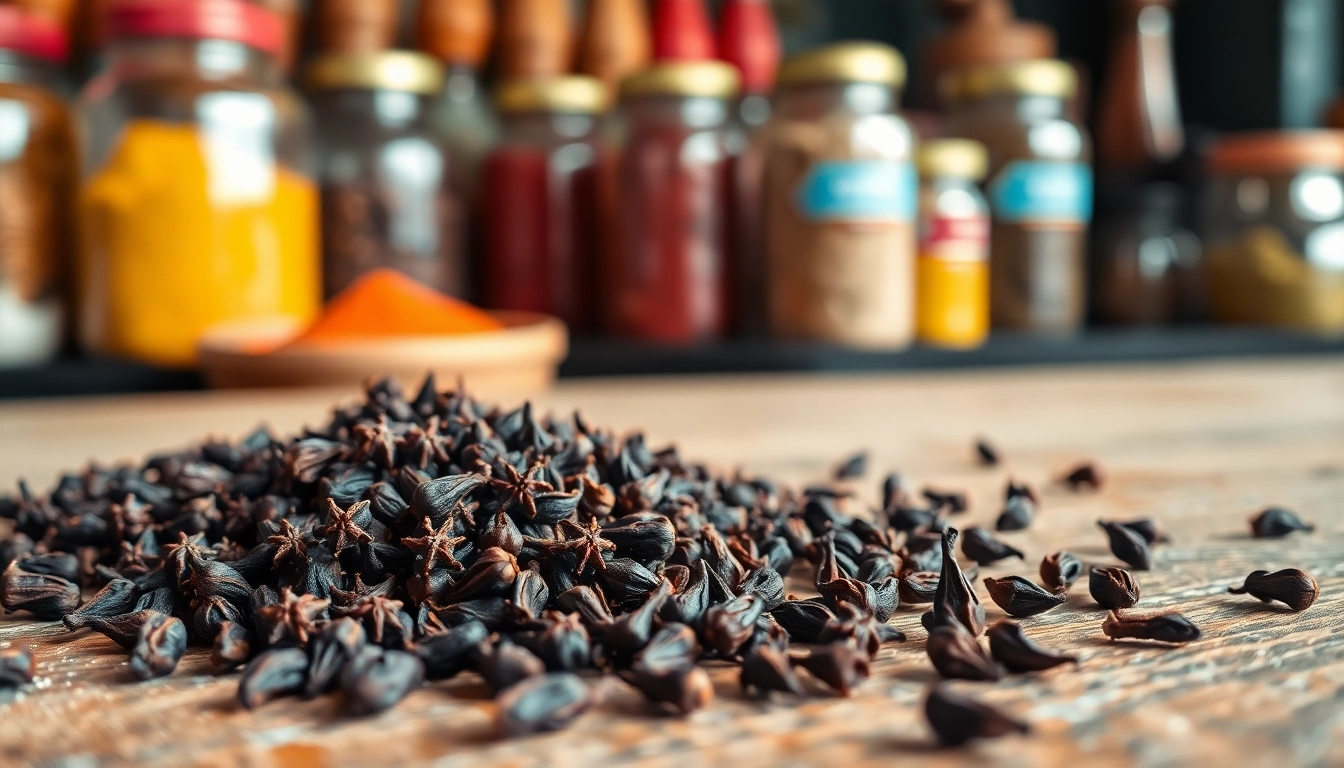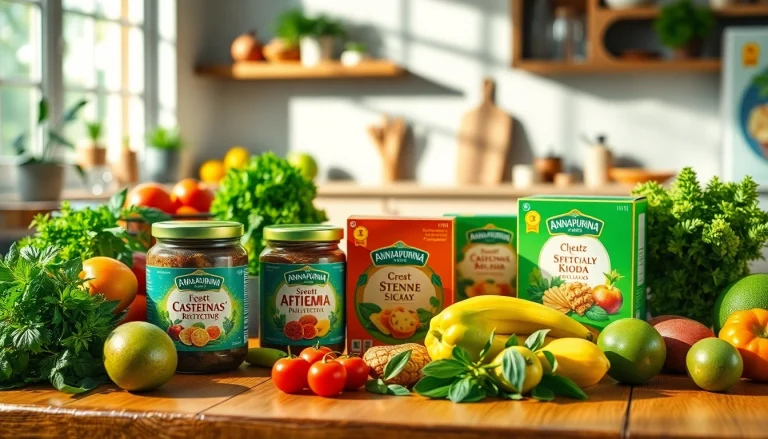Understanding Cloves: Essential Facts
What Are Cloves?
Cloves are the aromatic flower buds of the clove tree, scientifically known as Syzygium aromaticum. These rich, fragrant buds are typically dried before being used as a spice, and they come from an evergreen tree native to the Maluku Islands in Indonesia. Cloves are widely celebrated not only for their unique warm, sweet, and slightly bitter flavor but also for their comprehensive range of health benefits. Often used in cooking, traditional medicine, and in the cosmetics industry, cloves are a staple spice found in many kitchens around the world. They can be used whole or ground and are a common ingredient in both sweet and savory dishes.
Origin and History of Cloves
Historically, cloves have a fascinating journey that traces back over 2,000 years, originally cultivated in the Maluku Islands. The spice was so valuable that it became a significant trade item in ancient times, making its way to Europe via the Spice Route, primarily sought for its flavor and preservative qualities. Their desirability led to European powers like the Dutch seeking to control clove production, which contributed to major economic and colonial shifts in the region. Today, cloves are still grown extensively in countries like Madagascar, Zanzibar, and Sri Lanka, retaining their status as one of the most essential spices globally.
A Botanical Overview: Syzygium aromaticum
The clove tree, Syzygium aromaticum, belongs to the Myrtaceae family, and grows to about 8-12 meters tall. The flowers bloom as greenish-yellow clusters, but it is the unopened flower buds, when harvested and dried, that we recognize as cloves. The chemical composition of cloves includes eugenol, which is responsible for their distinct flavor and aroma, as well as many of their health benefits. This essential oil contains antioxidants and possesses anti-inflammatory properties, making cloves not just a culinary delight but also a powerful natural remedy.
Health Benefits of Cloves
Rich Nutritional Profile of Cloves
Cloves are small but mighty when it comes to nutrition. They are rich in essential nutrients, including manganese, vitamin K, and dietary fiber. Just a teaspoon (about 2 grams) of ground cloves contains about:
- 20 calories
- 0.5 grams of carbohydrates
- 1 gram of fiber
- 0.2 grams of protein
The presence of eugenol not only contributes to their flavor but also enhances their antioxidant properties, making cloves an excellent addition to a healthy diet.
Antioxidant Properties and Their Importance
Cloves have one of the highest antioxidant properties among spices, largely due to their high levels of eugenol. Antioxidants are critical for combating oxidative stress in the body, which can lead to chronic diseases such as cancer and heart disease. Regular consumption of antioxidant-rich foods like cloves can help reduce inflammation and strengthen the immune system. This ancient spice has been used in traditional medicine not just for its flavor, but as a preventive agent against various health issues.
Potential Health Benefits: From Digestion to Pain Relief
Cloves have been linked to numerous health benefits, including:
- Digestive Health: Cloves can promote digestion and are known to reduce gas and bloating. They stimulate the secretion of digestive enzymes, easing gastrointestinal discomfort.
- Dental Care: Clove oil is often recommended for dental care, notably for relieving toothaches due to its analgesic properties. Its antibacterial capabilities may also help prevent oral infections.
- Anti-inflammatory Effects: Regular use can help in reducing the levels of inflammation in the body, alleviating the pain associated with conditions like arthritis.
- Respiratory Relief: Cloves can assist in relieving respiratory conditions such as asthma and colds due to their expectorant properties.
- Blood Sugar Regulation: Preliminary studies suggest that cloves may help in regulating blood sugar levels, making them beneficial for individuals with diabetes.
With these myriad health benefits, incorporating cloves into your daily diet can be an excellent way to support overall wellness.
Culinary Uses of Cloves
Incorporating Cloves in Cooking
The versatility of cloves makes them a beloved choice in various culinary traditions. They can be used in both whole and ground forms. Whole cloves are often used in spice blends, while ground cloves are typically added to baked goods and savory dishes. Cloves pair well with cinnamon, nutmeg, and allspice, making them a key player in pumpkin spice blends and holiday recipes. Whether in a warm cup of chai or a rich lamb curry, the distinct flavor of cloves enhances the taste profile of numerous dishes.
Traditional Dishes and Recipes Featuring Cloves
Known for their warm and fragrant flavor, cloves play an essential role in various traditional dishes around the world:
- Indian Cuisine: In Indian cooking, cloves are a fundamental ingredient in garam masala, biryanis, and pilafs.
- European Baked Goods: Cloves are often featured in spiced cookies, cakes, and fruit preserves throughout Europe, especially during festive seasons.
- Middle Eastern Dishes: Cloves are commonly added to stews and braises, contributing to the aromatic profile of various meats and vegetable dishes.
From savory dishes like mulled wine to sweet treats like gingerbread, the possibilities are extensive when it comes to utilizing this spices.
Cloves in Baking: Spices and Flavors Combined
Baking with cloves brings out rich flavors and warmth in desserts. Popular applications include:
- Gingerbread Cookies: Incorporating cloves into gingerbread adds depth to the spicy profile, elevating this holiday favorite.
- Fruit Pies: Whether it’s an apple or berry pie, adding a pinch of cloves can enhance the overall taste.
- Spiced Muffins: Cloves complement other spices beautifully in muffin recipes, providing a rich aroma even before baking.
Understanding how to balance cloves with other flavors is key for achieving that perfect spice combination in baking.
How to Store and Preserve Cloves
Best Practices for Freshness
To ensure cloves retain their flavor and potency, proper storage is essential. Here are best practices for storing both whole and ground cloves:
- Cool, Dark Place: Store cloves in a cool, dry place away from sunlight, as excessive heat and light can degrade their quality.
- Airtight Container: Use an airtight container to minimize exposure to air, which can cause the spices to lose flavor over time.
- Labeling: Clearly label containers with the date of purchase to track freshness.
When properly stored, whole cloves can last for several years, while ground cloves are best used within six months to maintain their flavor integrity.
Signs of Spoiled Cloves
It’s important to recognize when cloves have gone bad. Here are a few signs:
- Loss of Aroma: Fresh cloves possess a strong aroma. If they smell faint or odorless, they may be stale.
- Color changes: Cloves should retain their dark brown color. Any significant fading could indicate age.
- Texture changes: Cloves should be firm to the touch. If they feel soft or shriveled, it’s time to dispose of them.
Using Clove Oil: Tips and Techniques
Clove oil, derived from the buds, is a concentrated form of the spice with numerous applications, particularly in dental care and aromatherapy. When using clove oil:
- Dilution: Always dilute clove oil with a carrier oil before applying it to the skin, as it can be potent and may cause irritation.
- Oral Use: For toothache relief, you can apply a diluted mixture to the affected area, but avoid swallowing large amounts.
- Aromatherapy: Use a diffuser with clove oil to create a warm and inviting atmosphere in your home.
By understanding how to use clove oil safely, you can harness its benefits effectively.
Exploring Clove’s Role in Natural Remedies
Clove’s Cultural Significance in Medicine
Culturally, cloves have long been recognized for their medicinal properties across various traditions. In Traditional Chinese Medicine, cloves are used to promote digestive health and warm the body, while Ayurvedic practices utilize cloves to balance digestion and alleviate nausea. This rich history underscores not only their culinary value but also their significance in holistic health approaches around the world.
How to Make Clove Water: A Simple Recipe
Clove water is an easy and healthy drink that you can make at home. Here’s a simple recipe:
- Start by boiling two cups of water.
- Add 5-7 whole cloves to the boiling water and let them steep for about 10-15 minutes.
- Let the mixture cool, strain out the cloves, and enjoy your clove water warm or chilled.
- You can also enhance the flavor by adding lemon juice or honey.
This drink can aid digestion and support overall health when consumed regularly.
Safety Precautions When Using Cloves
While cloves offer numerous health benefits, it’s important to consume them in moderation. Excessive intake can lead to complications, such as:
- Digestive Issues: Large quantities can upset the stomach and cause nausea.
- Blood Thinning: Clove oil contains eugenol, which may slow blood clotting. It is advisable for individuals with bleeding disorders to avoid high dosages.
Always consult a healthcare professional before incorporating concentrated forms of cloves or clove oil into your health regimen.








